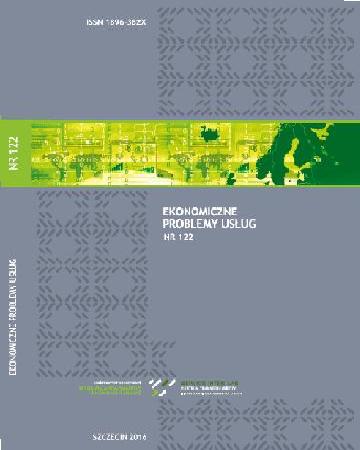
ISSN: 1896-382X
eISSN: 2353-2866
OAI
DOI: 10.18276/epu.2017.126/2-17



Issue archive /
nr 126 (2) 2017
Kontrola rodzicielska młodzieży online w obszarze wykorzystywania nowoczesnych środków komunikacji
(Parental control youth on-line in the modern means of communication)
| Authors: |
Katarzyna
Warzecha
Uniwersytet Ekonomiczny w Katowicach Wydział Zarządzania Katedra Statystyki, Ekonometrii i Matematyki Zakład Ekonometrii Andrzej Wójcik Uniwersytet Ekonomiczny w Katowicach Wydział Zarządzania Katedra Statystyki, Ekonometrii i Matematyki Zakład Ekonometrii |
| Keywords: | youth parental control Internet online safety |
| Data publikacji całości: | 2017 |
| Page range: | 12 (161-172) |
| Klasyfikacja JEL: | C10 I12 |
Abstract
Modem means of communication (computer, tablet, smartphone often with access to the Internet) is the essential equipment of modem youth, who wants to be always on-line. The article presents test results obtained with data from surveys of parents of students of middle schools and high schools on parental controls in the area of use by young people of modem Information and Communication Technologies (ICT). During the study sought to gain knowledge about whether parents talk to their children on topics related to threats and security in the network and make use of the available parental control programs on the Internet or on mobile devices.
Download file
Article file
Bibliography
| 1. | Benchmarking of parental control tools for the online protection of children SIP-Bench III. Safer Internet Programme. Pobrane z: http://sipbench.eu/in dex.cfm/secid.9 (27.12.2016). |
| 2. | Digital in 20I6, raport. Pobrane z: www.slideshare.net (16.12.2016). |
| 3. | 8 http://www.pegi.info/pl/index/id/369/ (15.12.2016). |
| 4. | Final Report (2012). EU Kids Online II Deliverable 8.3 for the EC Safer Internet Prograrrnne. |
| 5. | Pobrane z: http://www.lse.ac.uk/EUKidsOnlineFinalReport/ (16.12.2016) |
| 6. | Izbebski, P., Kotyśko, M. (2016). Zaburzenie korzystania z gier komputerowych. W: B. Habrat (red.), Zaburzenia uprawiania hazardu i inne tak zwane nałogi behawioralne (s. 276- 304). Warszawa: Instytut Psychiatrii i Neurologii. |
| 7. | Jankowski, P. (2015). Mobilna kontrola rodzicielska dla smartfonów i tabletów z systemem An¬droid. Pobrane z: http:!/www.benchmark.pl/aktualnosci/eset-parental-control-ochrona-rodzicielska-android.htrnl (27.12.2016). |
| 8. | Krzyżak-Szymańska, E., Szymański, A (2013). Profilaktyka nowych uzależnień wśród dzieci i młodzieży. Zarys problematyki. Katowice: Górnośląska Wyższa Szkoła Handlowa. |
| 9. | Markowski, P. (2016). Kontrola Rodzicielska na urządzeniach mobilnych. Pobrane z: https://www.atena.pl (29.12.2016). |
| 10. | Mascheroni, G., Ólafsson, K. (2013). Mobile internet access and use among European children. |
| 11. | Initial findings of the Net Children Go Mobile project. Milano: Educatt. Pobrane z: https://www.ofcom.org. nk/ _ data/assets/pdf _file/0020/317 54/Fourth-internet-safety-report.pdf (16.12.2016). |
| 12. | Ojcom report on internet safety measures. Strategies of parental protection for children online (2015). Pobrane z: https://www.ofcom.org.nk/ _data/assets/ pdf_file/0020/31754/Fourth-internet-safety-report.pdf (29.12.2016). |
| 13. | Taper, AE. (2011). Gry MM O RPG - cechy, możliwosci, zagrożenia. Media i Społeczeństwo, I. Ulfik-Jaworska, I. (2005). Komputerowi mordercy. Tendencje konstruktywne i destruktywne u graczy komputerowych. Lublin: Wydawnictwo KUL. |
| 14. | Warzecha, K. (2015). Gry komputerowe (nie)bezpieczną formą rozrywki młodzieży gimnazjalnej. |
| 15. | W: J. Zinmy (red.), Współczesne zagrożenia: prawda czy fikcja? (s. 53-71). Stalowa Wo¬la: Wydział Zamiejscowy Prawa i Nank o Społeczeństwie, Katedra Pedagogiki Katolic¬kiej. |